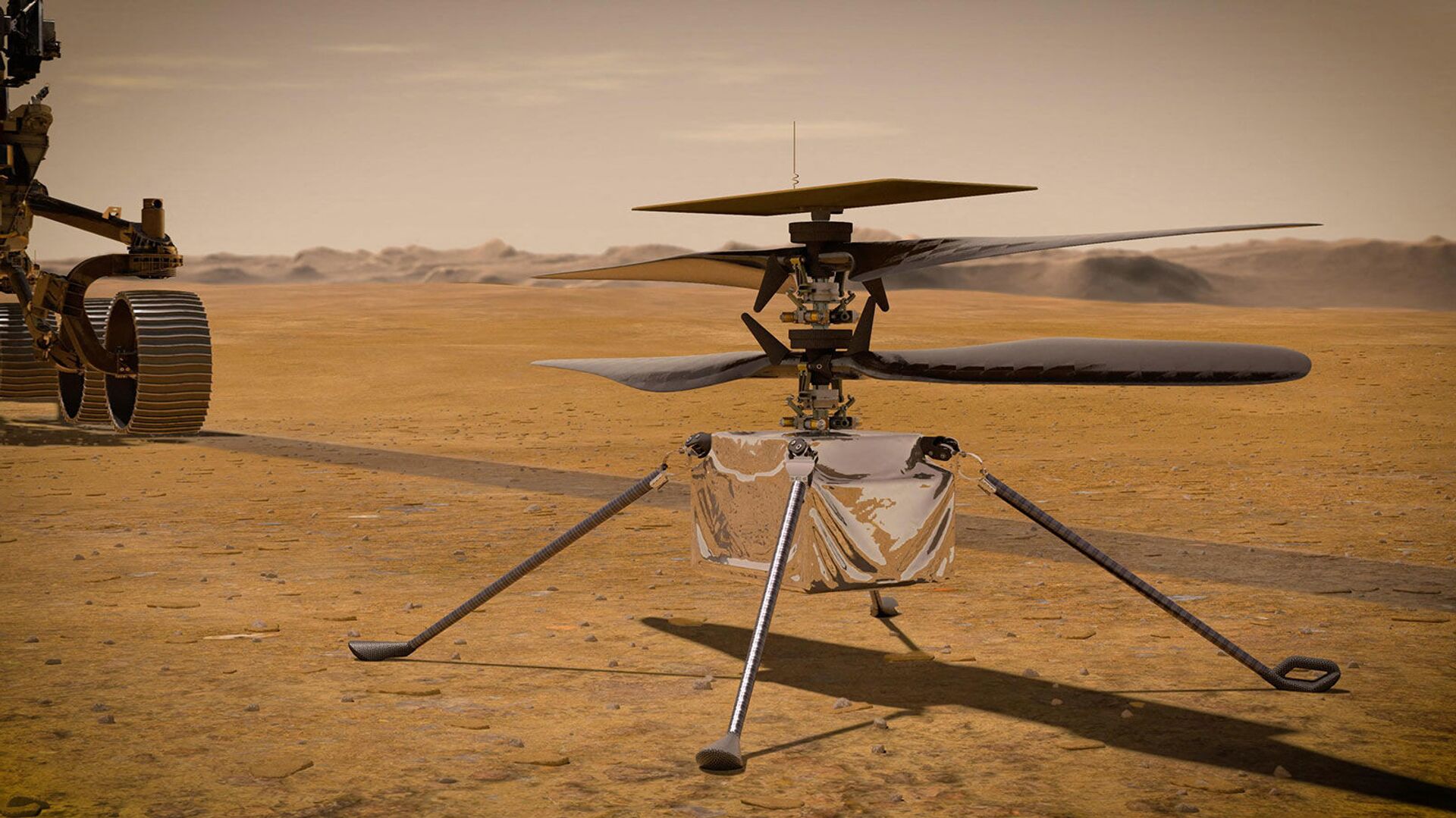https://sputnikglobe.com/20220910/we-must-go-deeper-new-experiment-suggests-mars-rovers-will-have-to-dig-to-find-life-1100640008.html
We Must Go Deeper: New Experiment Suggests Mars Rovers Will Have to Dig to Find Life
We Must Go Deeper: New Experiment Suggests Mars Rovers Will Have to Dig to Find Life
Sputnik International
Scientists are eagerly awaiting the results of the great exploration mission conducted by Curiosity and Perseverance. However, the rovers searching for life on... 10.09.2022, Sputnik International
2022-09-10T16:00+0000
2022-09-10T16:00+0000
2022-11-30T10:10+0000
rover
iss
international space station (iss)
science & tech
mars
https://cdn1.img.sputnikglobe.com/img/07e5/06/12/1083181302_3:0:1598:897_1920x0_80_0_0_778f2f3f5f8ea50d2b177e76613b7b6f.jpg
A new experiment held on board the International Space Station (ISS) has indicated that Mars rovers are unlikely to detect biomarkers on the Red Planet unless they dig deep.Both Curiosity and Perseverance utilize Raman spectrometers in order to identify organic compounds, using a laser to excite molecules and analyze exactly how they scatter light. However, the research published in Science Advances and led by Mickael Baqué of the German Aerospace Center (DLR) suggested that biological cells have hardly no chance of surviving on Mars’ surface due to the intense ultraviolet radiation coming from the sun.The researches exposed a sample of molecules to conditions similar to those on Mars for 469 days in the Biology and Mars Experiment (BIOMEX), including seven different types commonly found in organisms. Only three— chlorophyllin, quercetin and melanin — remained detectable after such exposure and even then, the signal from those molecules weakened by 30% to 50% due to the ultraviolet light.As a result, the researchers suggested that the Martian surface would likely appear dead unless the planet has enough life to constantly replenish such biomarkers. Otherwise, the rovers will have to dig under the first few "micrometers to millimeters" to find a layer not affected by the radiation.
mars
Sputnik International
feedback@sputniknews.com
+74956456601
MIA „Rossiya Segodnya“
2022
Evgeny Mikhaylov
https://cdn1.img.sputnikglobe.com/img/07e4/09/07/1080390164_0:0:1440:1440_100x100_80_0_0_46c187f2ab0908f86849a7d09a7def57.jpg
Evgeny Mikhaylov
https://cdn1.img.sputnikglobe.com/img/07e4/09/07/1080390164_0:0:1440:1440_100x100_80_0_0_46c187f2ab0908f86849a7d09a7def57.jpg
News
en_EN
Sputnik International
feedback@sputniknews.com
+74956456601
MIA „Rossiya Segodnya“
Sputnik International
feedback@sputniknews.com
+74956456601
MIA „Rossiya Segodnya“
Evgeny Mikhaylov
https://cdn1.img.sputnikglobe.com/img/07e4/09/07/1080390164_0:0:1440:1440_100x100_80_0_0_46c187f2ab0908f86849a7d09a7def57.jpg
rover, iss, international space station (iss), science & tech, mars
rover, iss, international space station (iss), science & tech, mars
We Must Go Deeper: New Experiment Suggests Mars Rovers Will Have to Dig to Find Life
16:00 GMT 10.09.2022 (Updated: 10:10 GMT 30.11.2022) Scientists are eagerly awaiting the results of the great exploration mission conducted by Curiosity and Perseverance. However, the rovers searching for life on the Mars may face an unusual obstacle - sunlight.
A new experiment held on board the International Space Station (ISS) has indicated that Mars rovers are unlikely to detect biomarkers on the Red Planet unless they dig deep.
Both Curiosity and Perseverance utilize Raman spectrometers in order to identify organic compounds, using a laser to excite molecules and analyze exactly how they scatter light. However, the research
published in Science Advances and led by Mickael Baqué of the German Aerospace Center (DLR) suggested that biological cells have hardly no chance of surviving on Mars’ surface due to the intense ultraviolet radiation coming from the sun.
The researches exposed a sample of molecules to conditions similar to those on Mars for 469 days in the Biology and Mars Experiment (BIOMEX), including seven different types commonly found in organisms. Only three— chlorophyllin, quercetin and melanin — remained detectable after such exposure and even then, the signal from those molecules weakened by 30% to 50% due to the ultraviolet light.
"Ultraviolet [radiation] only penetrates the first few micrometers to millimeters of the Martian surface, so organic compounds and potential biomolecules should be protected beyond these depths," Baqué told press.
As a result, the researchers suggested that the Martian surface would likely appear dead unless the planet has enough life to constantly replenish such biomarkers. Otherwise, the rovers will have to dig under the first few "micrometers to millimeters" to find a layer not affected by the radiation.


